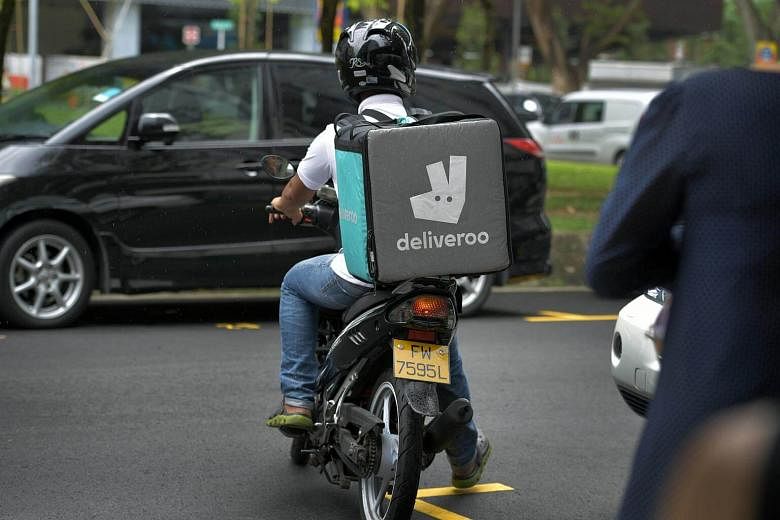Modern jobs increasingly come in different forms.
Last year saw the rise of the so-called "gig economy", where workers perform specific freelance and "on-demand" tasks, or "gigs".
Gigs used to be done mainly by freelancers such as plumbers, musicians and photographers. They are hired for a single occasion and paid after the job.
These workers often enjoy the freedom that comes from an unconventional job not tied to 9am to 5pm regular hours, but on the downside, there is usually no certainty over when the next job will come.
Arrangements like this have now spread in a big way to other sectors, notably food delivery and transport (Deliveroo, Uber and Grab) and short-term home rentals (Airbnb).
In Singapore, these independent or self-employed workers include insurance and real estate agents, who are non-salaried.
A study by the McKinsey Global Institute released last year found 162 million people in Europe and the United States - about 20 to 30 per cent of the working-age population - were doing some form of independent work. For about 44 per cent, this sort of work represents their main income.
And about 30 per cent do so out of necessity, not choice.
There has been no similar study in Singapore looking at the statistics on independent workers.
Financial experts say that while financial planning is important for everyone, gig workers need to pay special attention to securing their financial future, partly because their income stream is inconsistent.
Mr Brandon Lam, Singapore head of financial planning group at DBS Bank, said: "Due to the nature of gig-economy work - typically engaged on an ad hoc basis with no employee benefits such as medical insurance, life and disability insurance protection, paid sick leave and employer Central Provident Fund (CPF) contributions - these workers need to take greater discipline and commitment into securing their financial future than employed workers."
For instance, having zero or minimal CPF contributions will have an impact on home ownership, healthcare and retirement, he added.
Former Uber driver Dominic Lim, 48, told The Sunday Times that his top concern was the inconsistent income stream.
He had turned to Uber as a temporary lifeline as his bills mounted after he left his marketing manager position and was unsuccessful in his search for a corporate job.
After nearly a year as an Uber driver, he recently clinched a job as a corporate services manager.
He said: "Fortunately, I have sufficient CPF savings to service my home loan as well as emergency cash to tide me over. I also have a private hospital plan in place."


